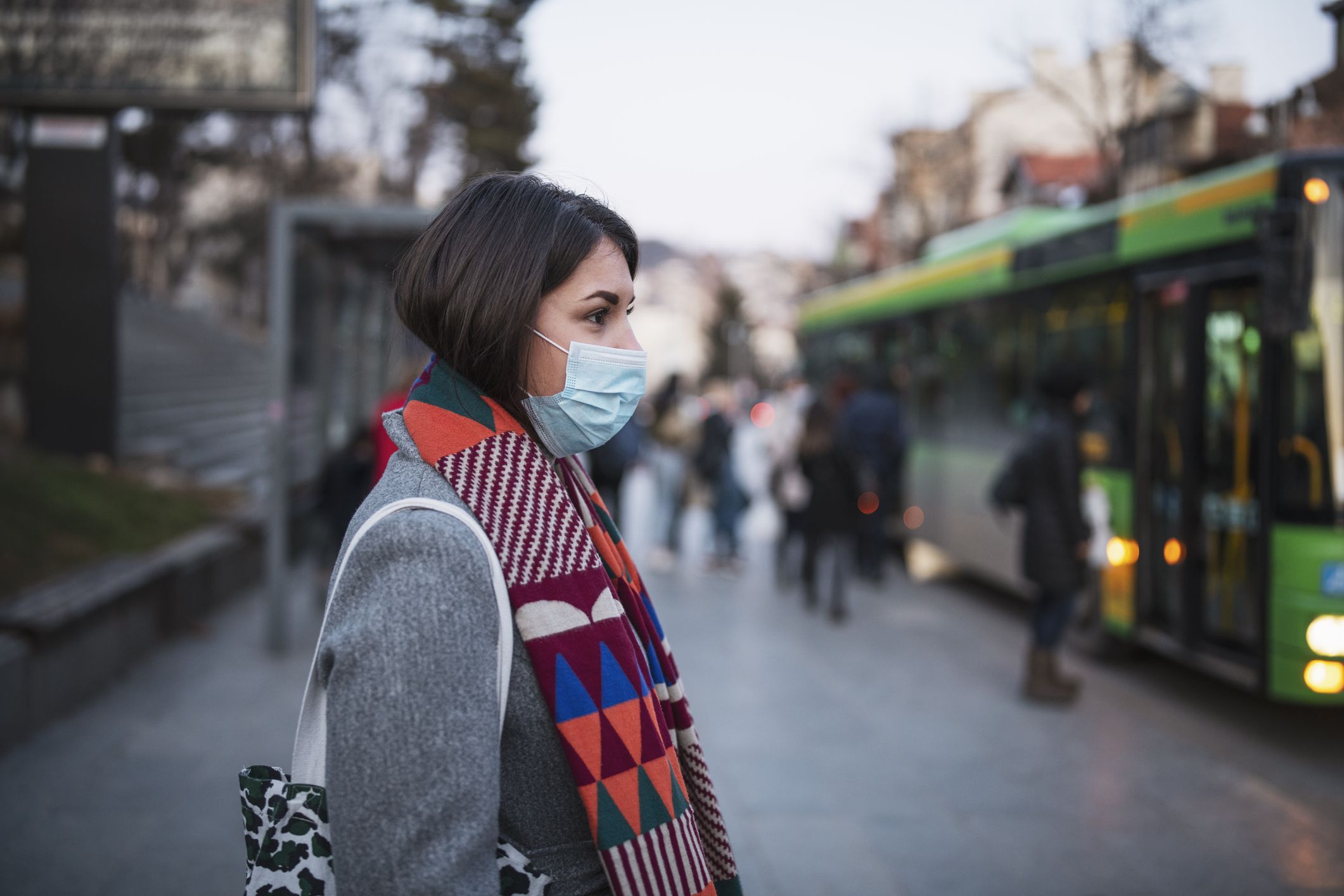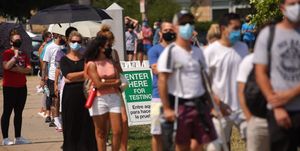Do I Have A Sinus Infection Or COVID-19? How To Tell The Difference, According To Doctors
Winter is the season that most people usually get sick. But this year, even the slightest sniffle or congestion can have you worried that you have COVID-19. Sooo…how the heck do you figure out if you are dealing with a sinus infection or COVID-19 anyway?
Asked and answered. We tapped cold and flu experts to decipher the difference between a sinus infection and COVID-19, and when you should go see your doctor to confirm what’s *really* going on.
What is a sinus infection?
“Sinusitis or rhinosinusitis, commonly known as a sinus infection, is an inflammation in the nasal cavity and paranasal sinuses,” says Kavita Shanker-Patel, MD, a family medicine physician at Northwestern Medicine Central DuPage Hospital. “A sinus infection typically lasts less than four weeks.”

The most common causes of sinus infections are viruses. But you can also have a bacterial rhinosinusitis, though it’s less likely. These occur in only about 0.5 to 2 percent of sinus infection episodes, according to Dr. Shanker-Patel. “This happens when bacteria secondarily infect an inflamed sinus cavity, and most commonly occurs as a complication of a viral infection,” she explains.
Typical sinus infection symptoms include:
- Nasal congestion
- Nasal discharge (typically green or yellow)
- Tooth ache or discomfort
- Facial pain or pressure that gets worse, specifically near the sinuses, when you bend forward
- Fever
- Fatigue
- Cough
- Losing your sense of smell, or having a reduced sense
- Pressure in the ears
- Hearing loss or tinnitus
- Headache
- Bad breath (a.k.a. halitosis)
And what are the symptoms of COVID-19 again?
The Centers for Disease Control lists the main tell-tale symptoms of COVID-19 as: cough and shortness of breath. But “the COVID-19 virus is also notorious for loss of smell and taste,” says Anthony Del Signore, MD, otolaryngologist at Mount Sinai. Patients also tend to complain about having intense fatigue as well.
The typical symptoms of COVID-19 include:
- Cough
- Fever
- Chills
- Body aches, back pain
- Headache
- Shortness of breath
- Sore throat
- Diarrhea
- Nausea and/or vomiting
- Loss of smell and taste
- Nasal congestion
- Rash
What are the key differences between the two infections?
Typically with a sinus infection, you’ll have that telltale congestion, facial and/or ear pressure, and mucus, but you won’t see all the other physical symptoms that you do with COVID-19 (think: body aches, diarrhea, nausea, vomiting, rash, shortness of breath, etc.),says Dr. Shanker-Patel. “Symptoms of a rhinosinusitis are mostly centered around the upper respiratory tract,” she adds.
That being said, “Many of the symptoms are very similar and, for this reason, it is most appropriate to talk to your health care provider if you develop any symptoms of either,” Dr. Shanker-Patel adds.
To make things even more complicated, you can have a sinus infection and COVID-19. “The two are not mutually exclusive. You can have both at the same time, and that’s where things become tricky,” says Dr. Del Signore. “The thing that sets [COVID-19] apart is really those systems systematic changes—the fevers, the total body chills and intense fatigue, and a dense loss of smell and taste.”
Should I go to the doctor to make sure my symptoms are *not* COVID?
Both experts agree that if you have any of the symptoms above, you should check in with your health care provider. However, this doesn’t mean you need to actually go see your doctor just yet.


“A lot of doctor’s office are offering telemedicine, which may be a good way to reduce your exposure, along with the health care provider’s exposure,” says Dr. Shanker-Patel. “Most have protocols in place to try to discern these types of infections from one another, so your best bet is to discuss any and all symptoms with them, and they can provide you with the best guidance.”
A few things to think about before doing a telemedicine check-in that can also help you gauge whether you could have COVID: “Have you been exposed to someone that was sick? Have you done any recent travel?” says Dr. Del Signore. “Considering those that you have been around and plan to be around if you’re not feeling well are also important screening factors.”
The bottom line: The symptoms of a sinus infection and COVID-19 may appear similarly in some cases, so check in with your doctor if you are concerned you’ve been exposed to the novel coronavirus.
Source: Read Full Article



